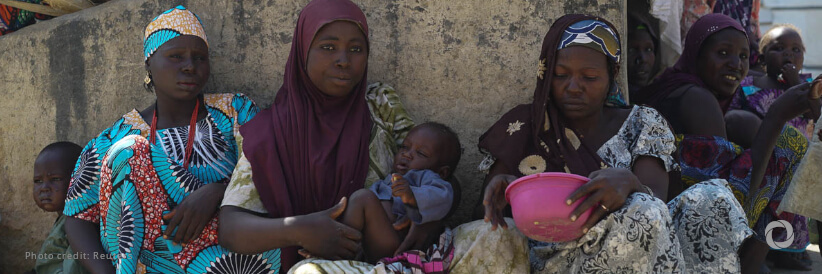In the wake of the devastating floods that hit Borno State in September 2024, the African Development Bank (AfDB) has contributed US$ 1 million from its Special Relief Fund to support emergency food response for flood-affected communities in Northeastern Nigeria.
The support comes at a critical time when humanitarian funding is in short supply and the country faces alarmingly high rates of food insecurity exacerbated by conflict, floods, and rising poverty. The United Nations World Food Programme (WFP) will use this contribution, on behalf of the Federal Government of Nigeria, to provide emergency food assistance to 120,000 women, men, and children. Each household will receive 35kg worth of staple food supply.
“AfDB’s support is timely and comes as a lifeline for those struggling to feed themselves amidst rising food prices and economic turmoil,” said David Stevenson, WFP’s Country Director in Nigeria. Communities which, after years of conflict and violence, started rebuilding their lives were struck by the floods and once again displaced, meaning more and more people cannot support themselves and their families.”
The recent floods of September 2024 exacerbated years of prior displacement, food insecurity, and economic hardship, resulting in disastrous consequences, that have pushed hunger levels even higher. According to the November 2024 Cadre Harmonisé food security analysis, conducted across 26 states and the federal capital, it is projected that 33 million people in Nigeria will face food insecurity by August 2025.
“I hope that this additional funding will mitigate the suffering of vulnerable people on the brink of acute hunger, at a time when more Nigerians than ever before need humanitarian assistance”, said Abdul Kamara, African Development Bank Director General in Nigeria. “I commend the Federal Government of Nigeria and WFP for the continuous efforts to operate in such a challenging environment to improve the lives of Nigerian families.”
This new contribution complements AfDB’s ongoing effort to restructure activities of the Programme for Integrated Agricultural Development, Adaptation to Climate Change (PIDACC) and the Inclusive Basic Service Delivery and Livelihood Empowerment Program to avail critically needed services in Borno, Yobe, and Adamawa states.
As part of the government’s Borno State Development Plan, WFP and its partners deliver food and specialized nutrition assistance to 1 million people in Borno State each month. WFP also trains and mentors health facility staff to conduct screenings and manage acute malnutrition among women and children whilst promoting appropriate maternal, infant, and young child nutrition practices. The Government of Nigeria is a firm supporter of WFP’s humanitarian food systems solutions in Borno state.

